Last week, the University of Miami, in the United States, hosted a series of meetings that promise to change the course of mathematics on the continent. The Institute of the Mathematical Sciences of the Americas (IMSA) invited leaders from various institutions in the area with the aim of strengthening relations and formalizing the creation of a collaborative group to organize initiatives between countries. The Brazilian Mathematical Society (SBM) was represented by President Paolo Piccione and Vice President Jaqueline Mesquita.
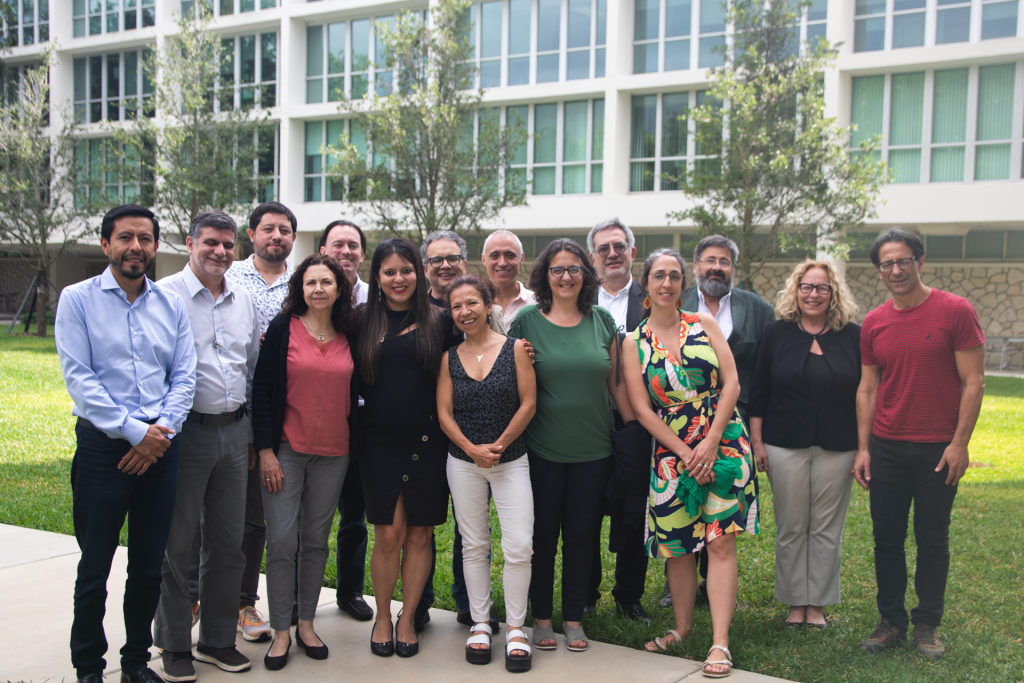
The importance of Brazil in the group is notable, since SBM is an integral part of the delegation responsible for creating the organization in the area. Leaders of leading institutions from the United States, Mexico, Colombia, Venezuela, Ecuador, Paraguay, Chile and Argentina also attended in Miami.
The objective of the meeting was to promote the alliance between the countries of Latin America, the North and the Caribbean to reinforce fundamental initiatives, such as cutting-edge scientific research, outreach events, awarding of prizes to outstanding mathematicians and international collaborations to make the group a reference world in the area.
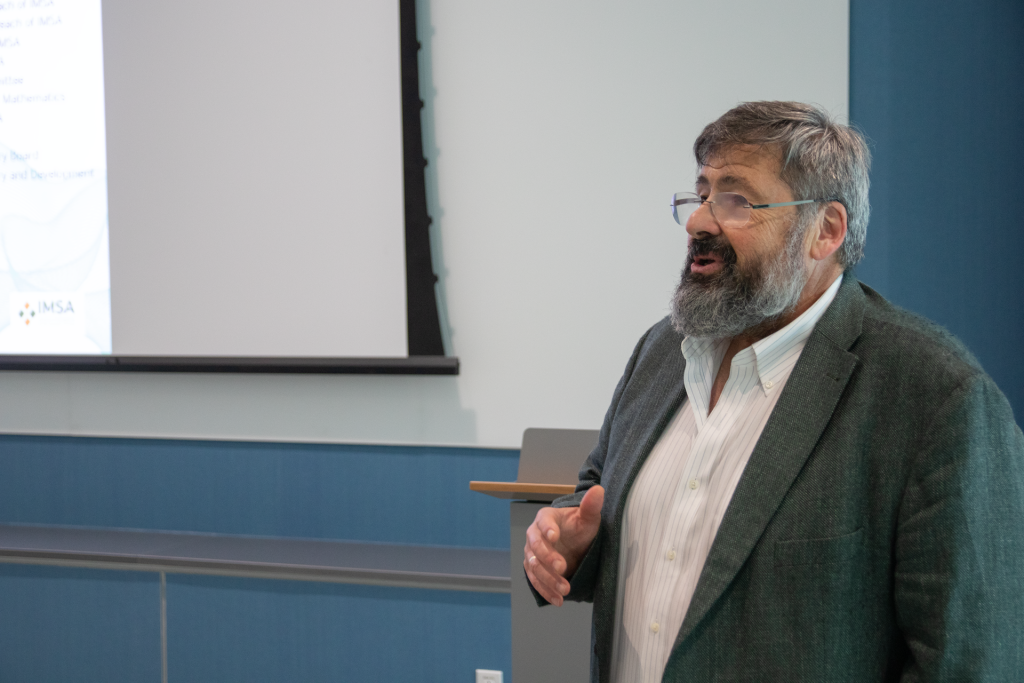
Unique Opportunity
The executive director of IMSA, Ludmil Katzarkov, sees the potential and the quality of the training of mathematics professionals in Latin America and declares the main purpose of the institution in the short and medium term. “One of our priorities is to open doors to create a cutting-edge research group and bring together the best mathematicians from all over Latin America involved in this global project. We were very impressed with the academic quality of the students. We firmly believe that any investment in the young generation of Latin American mathematicians will have the return we hope for”, he foresees.

The US Institute was also represented during the week by Senior Global Outreach Executive Ernesto Lupercio, Senior Global Outreach Executive Gabriela Olmedo, Senior Outreach Executive Mina Teicher, Associate Global Outreach Executive, Bernardo Uribe, the Chairman of the Scientific Advisory Committee, Phillip Griffiths, and Founding Director, Robert Cantrell.
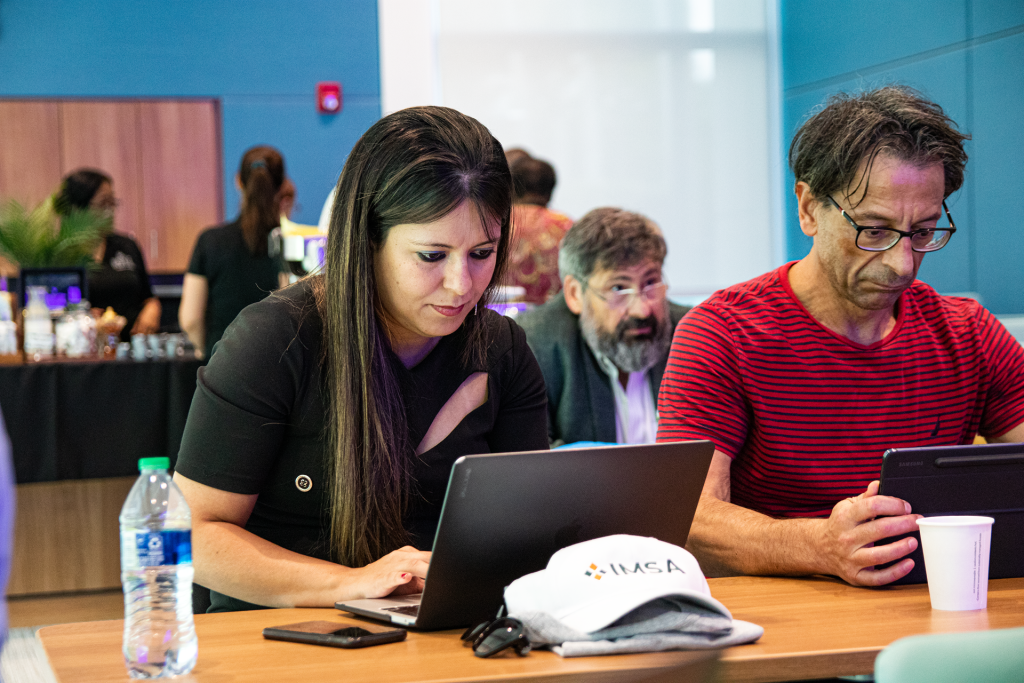
Jaqueline Mesquita reinforces that the constitution of a group of Latin American and Caribbean Societies aims to increase the participation of researchers in the area in reference institutions such as IMSA. “We want to be able, through the collaboration network of these Societies, to promote actions to bring Latin Americans closer to IMSA. The idea is that IMSA becomes a gateway for collaborations between Latinos and with other researchers from the United States and Canada”, she adds.
In the series of meetings in Miami, reference institutions in mathematics from neighboring nations of Brazil approved the initiative, especially for adding elements in common with other communities. Diego Recalde, vice president of the Ecuadorian Mathematical Society, believes that interacting with more developed countries can help young students in his country.
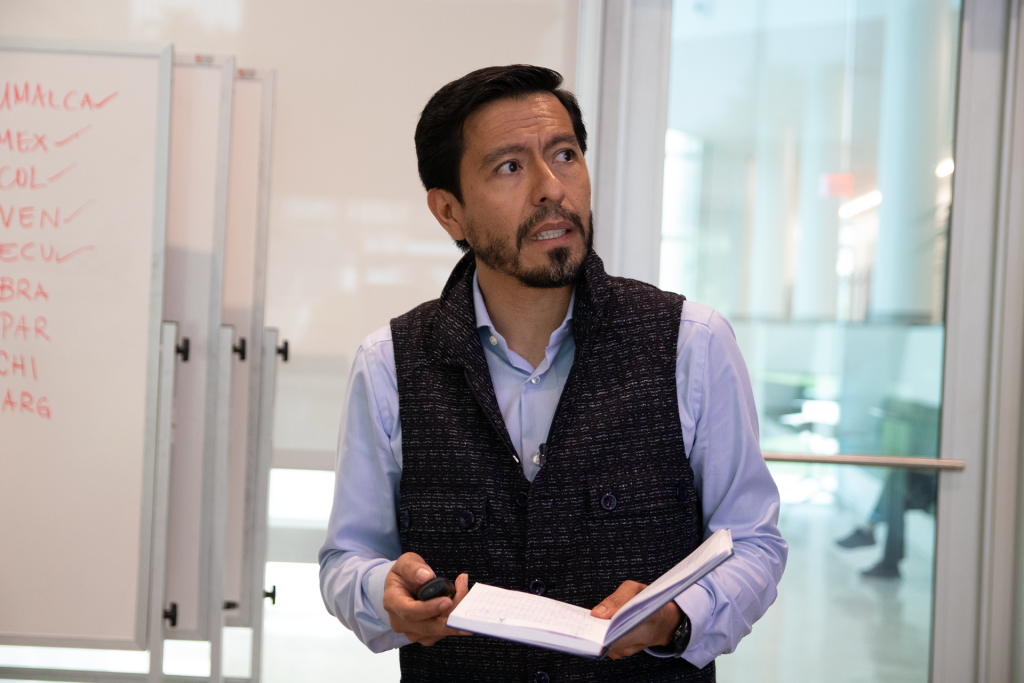
“The most important thing is to meet people from other areas of Mathematics from other nations, since, for example, in Ecuador, research and studies are not widespread. The opportunity to meet other mathematicians from different fields and learn what they do impacts mainly young students who want to study in these fields. It is important for them to have someone to inspire them when doing a master's degree or a doctorate”, says Recalde.
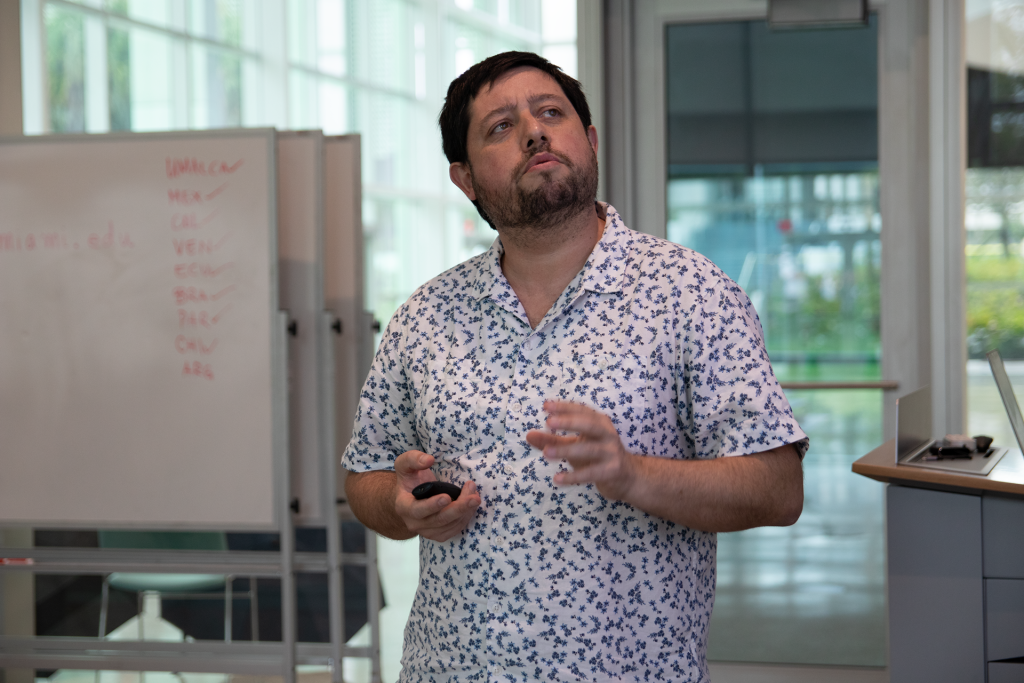
The president of the Chilean Mathematical Society, Mario Ponce, corroborates the point of view. “I am happy to see that this meeting is also important for the next steps of the new generation. We are part of Mathematical Societies committed and integrated into Latin American culture that participate in these fundamental meetings for children, for the little ones. We need to always be connected to this global collaboration network so that mathematics can contribute and have the ideal impact on society”, he declares.
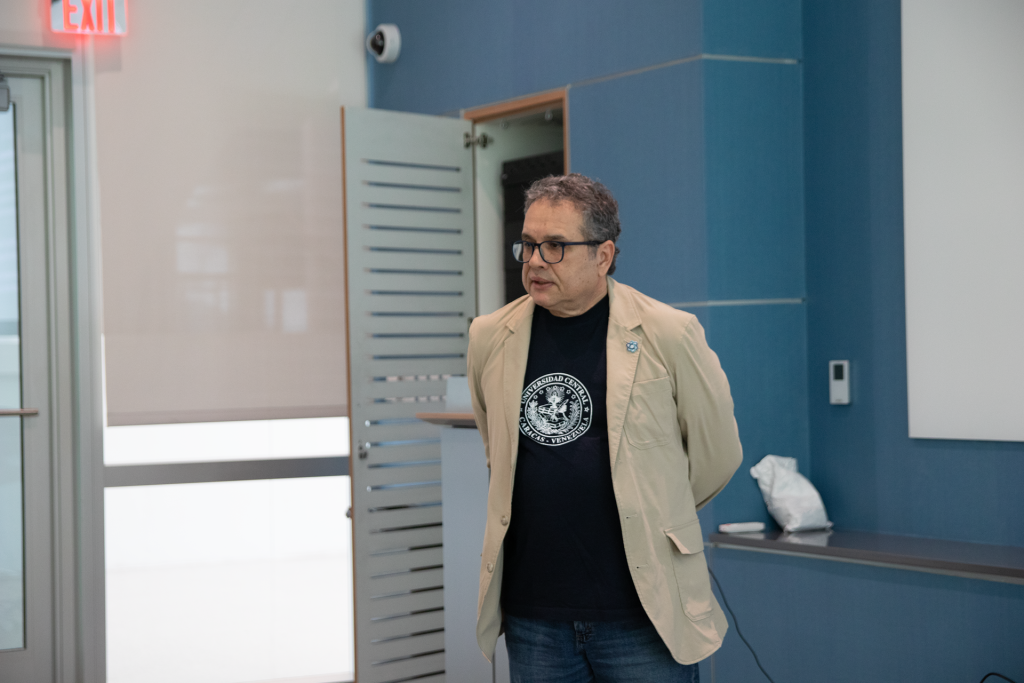
The strong economic crisis that several Latin American countries are going through makes the Miami meeting have an even more essential connotation for the development of the area of mathematics in the region. This is what Wilfredo Urbina, representative of the Venezuelan Mathematical Association, says. “Venezuela is an extreme case. We lack resources and investment. Unfortunately, it is a fact that, without funding, it is difficult to implement any initiative. For this reason, this event was very productive to compare and understand a bit the situation of each Society and share common problems”, analyzes the researcher.
The director of Publications of the Argentine Mathematical Union, Victoria Paternostro, believes that the collaboration between the countries of the continent, with common difficulties, will benefit the intellectual development of academic professionals in the area.
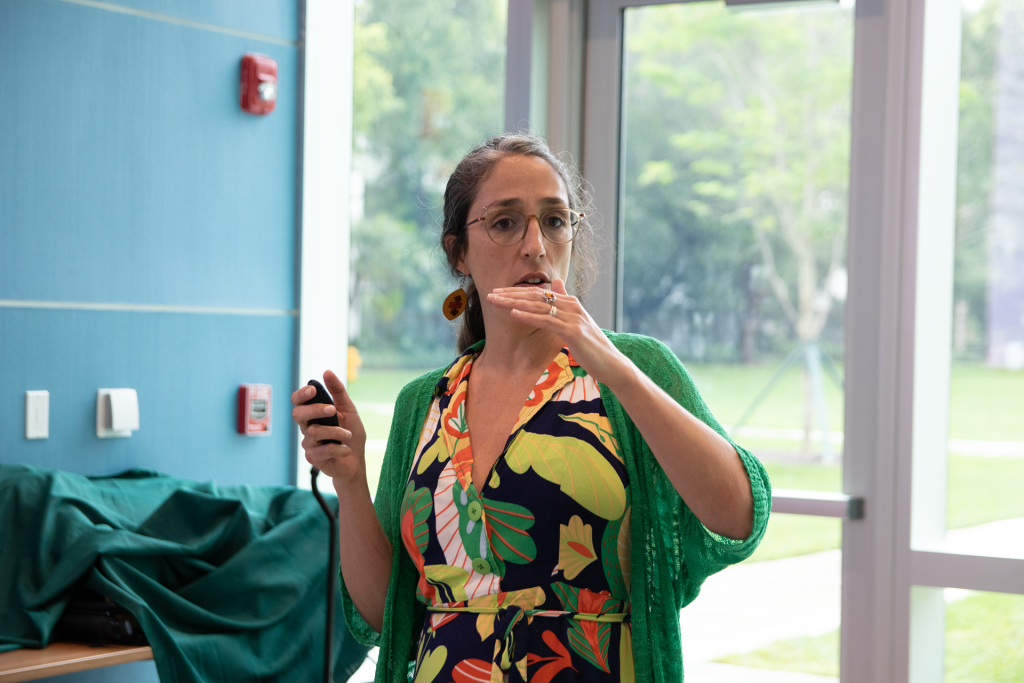
“The main difficulty we face today, unfortunately, is economic and, at the same time, political. Leading mathematical projects with an economically weak currency like Argentina's is very complicated. Therefore, the exchange helps a lot to strengthen the ties for the performance of the Societies, both individually and as a whole. We have very strong exchanges between Argentina and different countries, we have highly prestigious mathematicians and this group will further strengthen the relationship with professionals from all over the Americas”, he confides.

In Paraguay, the specific study in Mathematics areas is relatively new. Christian Schaerer, president of the Society there, also points out that the exchange of knowledge with professionals from other nations in Miami will help spread a richer mentality, as well as strengthen the group on the continent.
“International networking, to me, is the fundamental reason why we are here at this event. We Paraguayans need international help so that this little seed that was sown there and that we are cultivating can bear fruit. The interaction between all of America is an immediate need and I see this exchange as something very positive. I dream that this mentality can be deepened in very rich topics such as research in cutting-edge technology, in all lines of mathematics: Applied, Space and Aerospace, Artificial Intelligence. At the moment the borders are breaking down”, Schaerer believes.
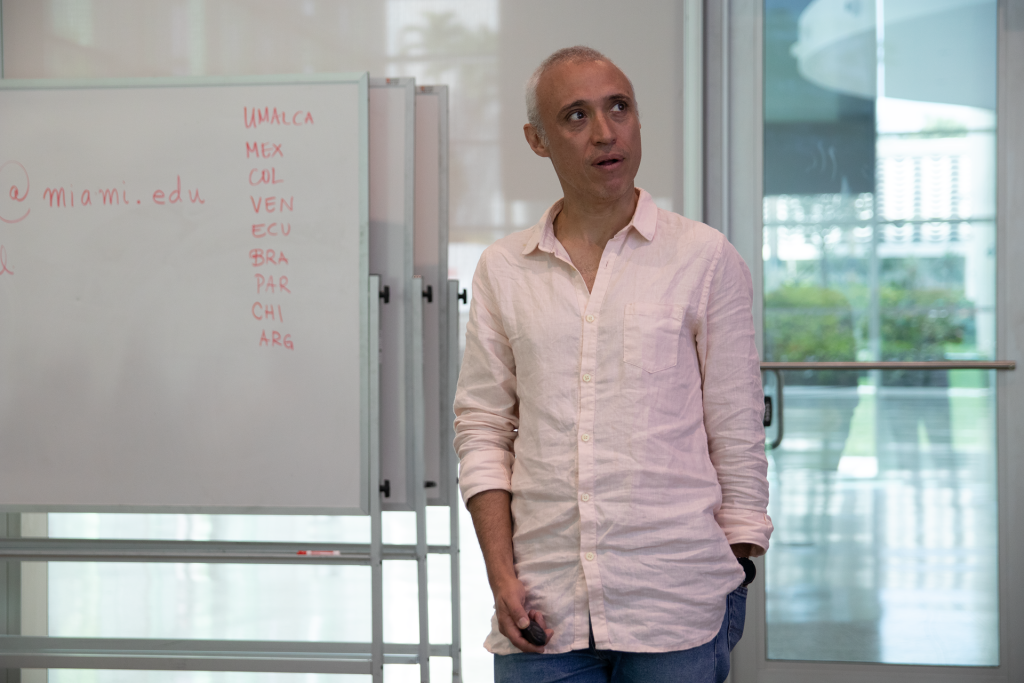
The president of the Colombian Mathematical Society, Alf Onshuus, admits that he did not know what to expect from the Miami event, especially since his country is unique among all Latin Americans. “It is very important to be part of something big. Particularly in Colombia there is a difficulty of local integration, because on the one hand we have Brazil, Uruguay and Argentina, who have been collaborating for years. On the other hand, we have Mexico, the United States and, in certain cases, Central American countries. And Colombia has always been very isolated. Because we are in the center of everything. Unless you have a pan-American idea, you're generally out of the question. Therefore, the focus of this event is very important. Having cutting-edge research experience in the field of Mathematics in the USA in your hands is something exceptional”, he explains.
Idea Exchange
Gabriela Araújo, president of the Mexican Mathematical Society, indicates that many foreigners end up heading to North America in search of better training in the area. Therefore, the exchange of knowledge of references from Latin American countries helps to further enhance the event that takes place at the University of Miami.

“We receive many Colombian students, like in the Institute where I work in Mexico. We have Colombian master's students, as well as Brazilians who are doing exchange programs. If we further develop this approach between the Societies, we can further increase the exchange processes, promote courses and focus on certain topics. This approach is beneficial and will strengthen many incoming links to IMSA”, believes the researcher.
Liliana Forzani, president of the Latin American and Caribbean Mathematical Union (UMALCA), points out that the initiative throughout the week shows positive results for all participating nations and can impact a new direction for mathematics, including strengthening of the women of the area.

“Something important from this meeting, particularly for UMALCA, is to note that we have successful programs that work well, even in countries with economic problems. We are taking advantage of this week to meet people in person and increase the possibility of raising funds for very important programs in small countries. In addition, it is important to strengthen the relationship between Latin American women who have a gender perspective, since we are closer to achieving equality goals”, she says.
Next steps
Paolo Piccione is proactive in pointing out the next IMSA initiatives discussed at the meeting with Latin American colleagues. “Extension and dissemination activities for the community are being planned. And one of the specific initiatives is the creation of three annual prizes for mathematicians, two of them aimed at young people and one for mathematicians of good quality. We are already planning this for 2024 ”, he mentions.

The idea, adds Jaqueline Mesquita, is that the tributes are annual and take place in the month of January. Another objective is to hold a congress in partnership with Mexico in 2025 and the event in Miami served to discuss details about the organization of this type of event.
“In these most intense days, it was very good for us to strengthen relations with these Societies in Latin America. And one of the things that we are thinking of doing with Mexico is an event in 2025. An event organized by the Mathematical Societies of Brazil and Mexico is one of our perspectives. Also, since the Congress of the Americas will be held here in 2025, the SBM is thinking of proposing a special session aimed at women in the field of mathematics. We could not help bringing this important discussion to such a great event”, concludes the SBM vice.
















